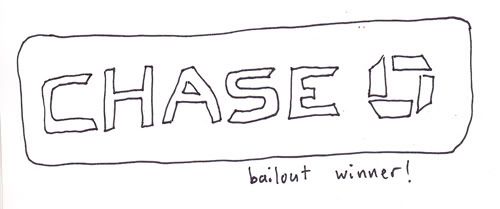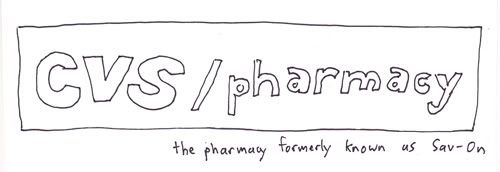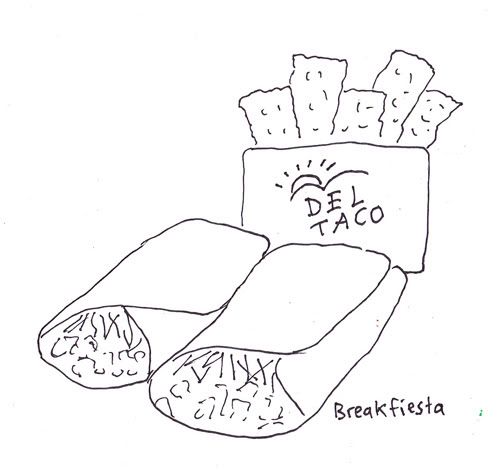“Show the man it’s not about the money.”
--The Arcade Fire
Dear Beatrice,
I still imagine this book ending with a reunion with you, but this time it’s different:
You are the young girl in my English 100 class who writes an essay about how worthless she feels and who, though writing, I am able to convince is actually very smart and worthy.
You are the young man, so cynical and despairing at the emptiness and fucked-up values of Orange County, who wanders into our art gallery on an open mic night and reads a poem that expresses exactly how he feels, a poem people listen to with rapt attention.
You are the faces I saw as I traveled across America by train.
You are the silly drawings I make.
You are the words I write every day in this Mead composition book.
Sincerely,
Jesse
Hibbleton is in the hole. We are unable to pay our artists or make rent. I’m in a position where I can put in extra money, but I don’t know how long that will last. We have to make money somehow. It is scary. I don’t want to go out of business. I believe too strongly in this. God help us. We need help.
I feel this burden/passion. Like, how the fuck am I teaching six classes, organizing two art shows, weekly film nights, open mic nights, a possible film festival, author readings, editing an art magazine, writing press releases, organizing gallery meetings, all at once?
I feel this burden/passion to devote most of my “free” time to do these things. One thing I have learned is the value of giving real time and effort to something that will bring me no instant financial success. To get outside the selfishness/childishness that demands immediate gratification/reward. To instead work toward larger, more distant, but more worthwhile goals—fostering a community of artists and writers in Fullerton, giving a home to these things.
To maybe have a real and lasting impact on my community. To be a force for good. I feel I have a clearer sense of what I’m supposed to do with my life.
...
"Hey Tony, I had the absolute shittiest thing happen today."
"Your truck got towed. Kevin told me."
"Yeah, my truck got towed because I had five unpaid parking tickets. They impounded my truck."
"That sucks."
"So not only did I have to pay the $350 worth of parking tickets (which is like double what they originally were), but I also had to pay the city $170 to "release" the truck and I had to pay the tow yard $125 for towing and storage. $700 dollars later, I got my truck back, a truck I hardly ever drive in the first place because who can afford gas these days?"
"Word."
"I asked the girl at the police station what the $170 was for."
'Administrative costs,' she said, 'Like typing up the report.'
'That's some expensive typing,' I said, 'Does that $170 include a ride to the tow yard?'
She gave me a look that communicated, 'Gimme a break.'
'They didn't impound the books I had in the truck, did they? That copy of Midnight's Children is signed by Salman Rushdie. Are you familiar with Rushdie's work?'
"And all of this couldn't have happened at a worse time. All my rents are due and now I'm not even sure if I can afford them."
"Dammit."
"I'm sick of being poor, Tony. I want to be rich."
"We will never be rich. Our brains don't work that way."
"My brain can't compute capitalism. The thing is, I feel like I contribute to society. I'm an English teacher, I run a basically non-profit art gallery, I help organize a monthly community art walk, I own a book store, etc. I just don't contribute in ways that society deems worthy of reward. If I was some kind of banker or real estate mogul or politician, I could be rollin' in the dough, especially if I had no conscience or moral compass or imagination. Then I could really be ballin'."
"Maybe we should become bank robbers. We could knock down a Wells Fargo."
"Didn't they get bought out in the whole economic crash?"
"No, that was Washington Mutual. They got bought out by Chase."
"Oh yeah...like a year ago all those Chases popped up everywhere."

"Like CVS. Those drug stores sprouted up like flowers a few years back."
"Normally, you would think a business grows slowly, but in the business of banks and drug stores...those shits explode."
"I wonder why."
"I imagine it has something to do with the billions of dollars the government gave them in 'bailout' money. Sometimes I think it's the corporate executives who are the real robbers and criminals. They have learned how to steal money from people and make it legal. I imagine them sitting around in some board room, discussing price fixing and lobbying and other shady corporate shenanigans, and some junior partner asks, 'But is that legal?' And the CEO cackles and says, "I will make it legal. Once more the Sith will rule the galaxy!"

...
Tony told me this story tonight. And older woman came into the gallery. She kept talking to Tony about Jesus. She took his hand and prayed that the gallery would be blessed with great fortune.
Then she went and looked at some books. She picked up a book that was priced at $5 and she said, “Can I get this for fifty cents?”
I am certain she was totally unaware of the irony of her actions.
...
I went to a book release party tonight for a book that probably not very many people will read because it is a book of poetry put out by a small independent publisher and who really reads poetry these days?
But the party was nice—it was at the Long Beach Aquarium and it was pretty crowded and I’m convinced that this book of poetry is very good and it gets me thinking about how if everyone in America read a book of poetry tonight instead of watching television—how much better that would be. Maybe it would even solve our current economic crisis somehow, because maybe it would make people care less about getting rich and more about being human beings. And then those people with money would help the people without it. And people would buy things like art and poetry books from small independent publishers, and the poets and artists of America could make a living too, instead of scraping by on scraps.
I’m struck by this fact—that the people who make art and write poems and make music and organize cultural and community events often don’t get paid for it. Often it actually costs them great effort and time and money. But they do it anyway because they believe in it. They believe in making the world a more interesting and beautiful and compassionate place.
I want to be one of these people. To go against the tide of greed and selfishness and give and give of myself for others, for my community. This is good.
...
If money is not your primary motivation, you get to do some pretty fucking awesome things. Landon and I are driving to Los Angeles to interview Mark Mothersbaugh for Hibbleton Independent.

“Dude, Mark Mothersbaugh!”
“Mark fucking Mothersbaugh!”
“DEVO, The Life Aquatic, Pee Wee’s Playhouse!”
“No big deal.”
We arrive at his studio, a large green circular building on Sunset.
We meet Mark and shake hands. We shake hands with Mark Mothersbaugh.
Before the interview, he gives us a tour of his studio.
“This is one of the original ‘Energy Dome’ hats.”
“Here are some paintings I did.”
“This is where I record music.”
“Here are some of my synthesizers.”
We sit down in one of his recording rooms and do the interview. He talks about the Kent State Massacre, about DEVO, about Pee Wee’s Playhouse, about working with Wes Anderson, about his artwork.
After the interview, I say, “You know I really love the music you did for The Life Aquatic.”
He walks over to one of his synthesizers and starts playing the music for me. A private concert by Mark Mothersbaugh. No big deal.
If money is not your primary motivation, you get to do some pretty fucking awesome things.
...
I’m at the Unemployment office in Anaheim, at a mandatory interview with a man named Raul. He has a tiny rug tacked to the inside of his cubicle that has a stitching of a llama and reads “Peru.” I scan the photographs on his desk: one of him in Army gear, holding a big rifle, one of his dancing with a woman who I think might be his mother. Raul has a pleasant demeanor. He shows me some web sites where I can look for jobs. I get talking to him about teaching and he says, “I can tell you love it. I can feel it.” He tells me he wants to be a social worker, that this job is only temporary. I shake Raul’s hand and we both say goodbye and good luck. I feel I have made a friend, one who I will probably never see again.

...
It's Easter Sunday, approaching midnight. I'm in The Continental Room, sipping a vodka coke. Troy is inside on the turntables, playing a Misfits song. I'm sitting next to my friend Reuben.
"Happy Easter, I say.
"I'm Jewish," Reuben says, "We don't celebrate Easter."
"Happy Passover," I say.
"I heard a joke the other day. You know how Jews don't eat bread that rises? Well, we don't like anything that rises."
"Haha. Like Jesus."
"Yeah, it's a resurrection joke."
"But Jesus was a Jew."
"True."
"You know," I say, "I'm something between an agnostic and a Christian."
"I'm something between an agnostic and a Jew," he says.
"The thing that really bothers me about Christianity is that it is such a colonizing religion. The conquistadors, the crusades, the missions, the inquisition. All that oppression and injustice, done by Christians. It's embarrassing," I say.
Reuben sips his drink and says, "Yeah, us Jews are not proselytizers. We have just kept to ourselves and gotten fucked in the ass for a few thousand years."
I sip my drink and say, "Yep."
"Someone who tells you to believe something or die...I can't understand that," he says.
"Nor can I, my friend," I say as I hold my fingers to his head like a gun, "Now say the Lord's Prayer! SAY IT, motherfucker!"
"You're gonna have to kill me," he says.
"Alright, have fun in HELL with the other non-believers. BANG!" I say, pulling the pretend trigger.
"Hell...now that's a concept I can't get behind," Reuben says, as Troy puts on a new record, "According to Christians, all someone has to do to get into heaven is to accept Jesus into their heart as their personal Lord and savior. So, someone like Jeffrey Dahmer, who fucking ATE people, could theoretically go to heaven if, on his deathbed, he accepted Jesus into his heart. But someone like Gandhi, who actually did a lot of good in the world, goes to hell because he believes different things. I dunno...that whole schema sort of undermines the idea of personal responsibility."
"I know. I sometimes think the Christian concept of hell is morally absurd," I say.
"It is. It's fucking absurd," he says.
"I went to a Christian university for my first two years of college," I say, "By my second year, I was having this full-blown crisis of faith, where I was questioning everything. I remember talking to one of my professors in his office, telling him about my doubts. I told him I was having trouble believing in hell. And do you know what he said?"
"What?"
"He said, 'I stopped believing in hell ten years ago.' A professor at a Christian university! I'll never forget that."
"That's awesome. So, if hell is out, what about heaven? Because it seems like a lot of believers think, 'Okay, I've accepted Jesus into my heart. I believe the right things. So it doesn't really matter, ultimately, what I do now, in this life," Reuben says.
"Totally. Especially in Orange County. Whenever I see some conservative Republican Christian, living in some nice well-furnished home, driving an expensive car, working some corporate job, pulling down six figures a year, I think...You are living NOTHING like Jesus lived. He was poor. He railed against the rich and the conservatives of his day. He said, 'It's easier for a camel to go through the eye of a needle than for a rich man to enter the kingdom of heaven.' In other words...impossible. But then he said, 'What is impossible with man is possible with God.' So I guess there is hope for rich people too, if they sell their stuff and give it to the poor. If anything, you'd think Christians would be liberal, not conservative."
"That's a weird metaphor," Reuben says, "A camel through the eye of a needle."
"I think about heaven a lot, "I say, "What is it?"
We sip our cocktails in silence for a while, and Troy plays a new song.
I say, "Jesus said, 'The Kingdom of heaven is within, and the kingdom of heaven is at hand.' Meaning, I think, heaven is possible here, now, in this life. Maybe it has to do with love, and how we relate to one another, and what we contribute to the world and to other people, and community. For me, the first night of the Downtown Fullerton Art Walk, I remember thinking, 'For me, this is heaven.'"
"I've thought about that too," Reuben says, "Sometimes I'll get bummed out because I feel like I haven't yet contributed what I want to contribute to this world. Maybe, when we're old, we'll look back and understand...that time when I was in the band, when I was poor and struggling...that was my heaven."
I look at my cell phone. It's almost 1am.
"Hey man, I gotta go," I say, "I have early class tomorrow.
"It was good talking to you. Happy Easter," Reuben says.
"Happy Passover," I say.
We shake hands and I pay my tab and give Troy a high-five and walk out onto quiet streets thinking, 'Was that heaven?' That conversation, a skeptical Christian and a skeptical Jew, drinking in a bar on Easter Sunday, feeling more alike than different, to a soundtrack of punk music.
...
It's funny that right now, when I am as poor as I've been in a while, when I should be like freaking out about money and bills and stuff, I am as happy as I've been in quite a while.
7am: Wake up
8am: Teach English 99 class
9am: Eat breakfast at Del Taco ($2 Breakfiesta)
9:30: Drive to Goodwill to get frames for drawings for art show on Sat.
11am: Teach another English 99 class
12: Office hours—meet with students, reply to e-mails, blog, create facebook event for City Council campaign
2:30pm: Teach another English 99 class
4pm: Frame drawings, drive them to gallery in Costa Mesa
7pm: Art Walk meeting
9pm: Dinner. Tombstone. Watch an episide of “The Ricky Gervais Show”
10pm: Grade papers
12: Sleep.
Repeat.

